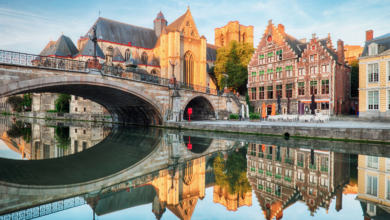Flitwick: A Hidden Gem of History, Charm, and Character

Discover the charm of Flitwick, a town full of history, community spirit, and unique culture. Learn its origins, lifestyle, and why it’s more than just a name in the English countryside.
Introduction to Flitwick
Flitwick is a name that carries more charm than you might expect at first glance. Nestled in the heart of Bedfordshire, this market town is one of those places that blends traditional English heritage with a modern lifestyle. It is the kind of spot that doesn’t scream for attention but rather quietly reveals its treasures to those who take the time to explore.
When you hear the word Flitwick, you might think of a quaint English village surrounded by rolling hills and the kind of community where everybody knows each other’s name. That impression isn’t far from the truth, yet it also underestimates the unique depth the town holds. From its medieval roots to its role in today’s commuter culture, Flitwick has an identity that deserves recognition beyond just a dot on a map.
The Origins and Meaning of Flitwick
The name Flitwick itself has fascinating origins. It is widely believed to derive from Anglo-Saxon roots, possibly referring to a stream or river crossing in the area. Place names often carry hidden clues about their landscape and people, and Flitwick is no exception. It hints at natural features that were once vital to settlers who chose the location for its fertile land and flowing water.
Digging deeper into history, Flitwick finds mention in the Domesday Book, a record of England from the eleventh century. This shows that the town has been on the map for centuries, growing slowly but steadily while retaining its small-town feel. That balance between staying true to its heritage and adapting to new eras is what continues to define Flitwick today.
Flitwick in the English Countryside
Flitwick’s location is one of its strongest assets. Situated in Bedfordshire, it enjoys easy access to London while being surrounded by the tranquility of English countryside. This dual advantage makes it particularly attractive for families and professionals who want the peace of rural life without losing touch with urban opportunities.
The countryside around Flitwick offers picturesque walking paths, green fields, and hidden woodland spots where you can escape the rush of modern life. It is a place where you can wake up to birdsong and still make it to a city meeting by train. This unique positioning has played a huge role in shaping the identity of Flitwick as a commuter town with the heart of a village.
The Community Spirit of Flitwick
At its core, Flitwick thrives on its community. Despite being relatively small, the town has managed to keep a strong sense of togetherness. Community events, local markets, and cultural activities are common here, bringing people together in ways that larger towns often struggle to replicate.
This isn’t just a matter of occasional fairs or holiday gatherings. The people of Flitwick are deeply involved in maintaining their local identity, whether through volunteering, supporting small businesses, or taking part in local decision-making. This strong community spirit is what makes Flitwick feel less like a random place on the map and more like home for those who live here.
Historical Landmarks of Flitwick
Flitwick may not have towering castles or sprawling estates, but it does carry a rich historical narrative in its landmarks. One notable site is Flitwick Manor, a historic building that reflects the architectural and cultural heritage of the town. Its grounds and gardens tell stories of past centuries and give residents a chance to connect with their history.
Another important aspect of Flitwick’s history lies in its churches. The parish church of St. Peter and St. Paul is a striking landmark that has stood as a spiritual and social hub for generations. Walking through the churchyard, you can sense the continuity of life and the deep roots that Flitwick maintains in its traditions.
Modern Life in Flitwick
Although steeped in history, Flitwick isn’t frozen in the past. The town has embraced modern life, offering amenities and facilities that make it an attractive place to live. Its train station is one of the most practical advantages, connecting residents directly to London in less than an hour. This makes Flitwick popular among commuters who prefer a quieter life outside the city.
Shops, restaurants, and leisure facilities have developed to cater to the growing population. Local schools and community services also provide a supportive environment for families. While modern life can sometimes overshadow tradition, Flitwick seems to manage the balance by weaving its heritage into its present-day rhythm.
Flitwick in Popular Culture
/indigomusic/media/post_attachments/wp-content/uploads/2024/09/Why-Flitwicks-Appearance-Changed-Drastically-After-%E2%80%98Harry-Potter-and-the-Chamber-of-Secrets.png)
Interestingly, the name Flitwick has also gained fame outside of the geographical sense. In the world of literature and film, Professor Filius Flitwick is a beloved character from the Harry Potter series. Though not directly tied to the town, the shared name has brought extra attention and curiosity to Flitwick.
This cultural overlap creates a fun connection, as visitors often joke about traveling to Flitwick expecting magical encounters. While they may not find charms and spells on the streets, what they will find is a real-world magic in the form of warm people, scenic surroundings, and a lifestyle that blends old and new.
Economy and Growth of Flitwick
The economy of Flitwick has shifted significantly over the centuries. Once reliant on agriculture, the town has grown into a commuter hub while still supporting local businesses. Independent shops, small restaurants, and service-based industries play a vital role in keeping the economy steady and diverse.
The growth of Flitwick has been gradual rather than explosive, which has allowed it to maintain its charm. Housing developments have appeared to accommodate demand, but the town has avoided the pitfalls of over-urbanization. This careful growth strategy has preserved the character of Flitwick while making it a practical place to settle.
Lifestyle in Flitwick
Life in Flitwick is a blend of peaceful rural living and convenient access to modern services. Many residents describe it as the perfect middle ground: you can spend a weekend enjoying country walks, local pubs, and community events, and still be close enough to major towns for work or shopping.
Leisure plays a big part in the lifestyle here. Whether it’s exploring Flitwick Moor, visiting local sports clubs, or attending seasonal fairs, the town offers plenty of opportunities to stay active and social. This balance of quiet living with engaging activities makes Flitwick particularly appealing for families, retirees, and young professionals alike.
FAQs About Flitwick
What is Flitwick known for?
Flitwick is known for its historic charm, community spirit, and its convenient position as a commuter town in Bedfordshire. It’s also associated with the Harry Potter character Professor Flitwick.
Is Flitwick a good place to live?
Yes, Flitwick offers a balanced lifestyle with countryside charm and excellent transport links to London, making it attractive for families and commuters alike.
Does Flitwick have historical landmarks?
Yes, landmarks such as Flitwick Manor and the parish church of St. Peter and St. Paul highlight the town’s long history and cultural roots.
How is Flitwick connected to London?
Flitwick has a direct train line that takes under an hour to reach London, making it ideal for commuters who want both urban opportunities and rural living.
Why is Flitwick mentioned in Harry Potter?
The surname of Professor Filius Flitwick from the Harry Potter series matches the town’s name, though there’s no official connection. The coincidence has, however, made the town more recognizable.
Conclusion
Flitwick may not be the loudest or most glamorous town, but that is exactly its appeal. It carries centuries of history, embraces modern living, and fosters a community spirit that is hard to replicate elsewhere. Whether you’re visiting for a day, considering a move, or simply curious about the name, Flitwick is a place that offers far more than first impressions suggest.





